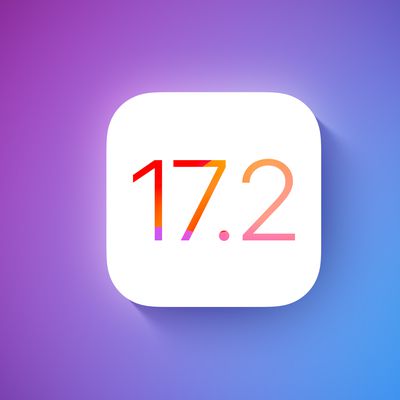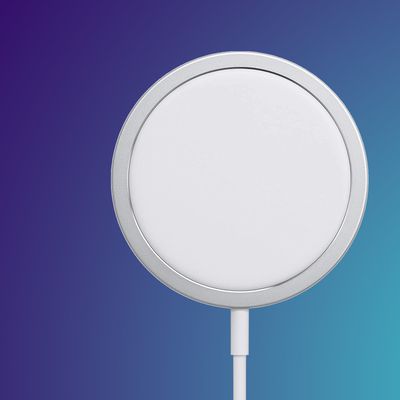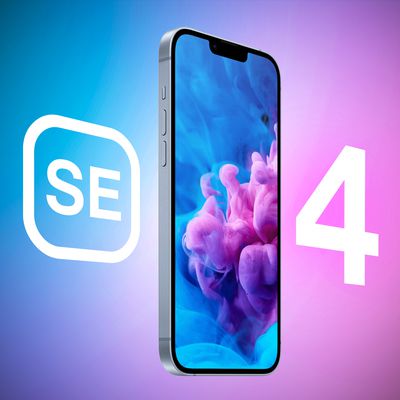The new M2-series MacBook Pro and Mac mini models launched today, marking the debut of the first M2 Pro and M2 Max chips. We have the M2 Pro Mac mini on hand, and thought we'd take a look at the machine and do a series of benchmarks to see how it fits into Apple's lineup.
Base model Mac mini machines come with either an M2 or M2 Pro chip, and like the now-discontinued Intel model, the M2 Pro has four Thunderbolt 4 ports while the M2 version has just two. Other than that distinction, the two Mac mini models are identical externally, offering two USB-A ports, an Ethernet port, an HDMI 2.1 port, and a 3.5mm headphone jack.
Because Apple transitioned from an older Intel chip to an Apple silicon chip with the high-end M2 Pro Mac mini, there is no direct comparison that we can make. Other M-series chips already outperformed the prior-generation Intel Mac mini, but to give some perspective, we thought we'd share some benchmarks comparing the M2 Pro Mac mini to the M1 Max MacBook Pro.
The M1 Max MacBook Pro features a 10-core CPU and 32-core GPU, and the higher-end base Mac mini with M2 Pro chip features a 10-core CPU and 16-core GPU.
Here are our test results:
Speedometer(Web Responsiveness)
- M2 Pro Mac Mini - 383
- M1 Max MacBook - 319
Cinebench
M2 Pro Mac Mini:
- Multi-core - 11696
- Single-core - 1642
M1 Max MacBook Pro:
- Multi-core - 12240
- Single-core - 1528
Geekbench
M2 Pro Mac mini:
- Single-core - 1886
- Multi-core 11862
- OpenCL - 38712
- Metal - 45831
M1 Max MacBook Pro:
- Single-core - 1787
- Multi-core - 12721
- OpenCL - 55866
- Metal - 67403
Obviously the M1 Max is outperforming the M2 Pro when it comes to the GPU because it has twice the GPU cores, but the performance isn't doubled. The M2 Pro Mac mini is closer in performance to the M1 Max than you might expect.
The M2 Pro Mac mini is priced starting at $1299, a solid price for the performance that it's providing. If you're looking for a desktop machine that's affordable but still able to be used for video editing, 3D rendering, and similar tasks, it's worth looking into. Make sure to watch our video up above to see our full suite of benchmarks, and we'll have an M2 Max MacBook Pro video coming tomorrow.























Top Rated Comments
This appears to mean that all of the Mac Mini M2, and Mac Mini M2 Pro models, that are in stock at stores, will have either the 1,500 MB/s limit on 256GB SSD models, and around 3,000 MB/s limit on 512GB SSD models.
Influencers who received 1TB or larger SSD Mac Mini M2 Pro review models are reporting the normal 6,000+ MB/s SSD disk speed. I wonder is other online reviewers also got 1TB or larger SSD Macbook Pro M2 Pro/M2 Max models to review also.
Perhaps, Macbook Pro M2 Pro/Max models with 512GB SSD have the slower problem as the M2 Pro Stock Mac Mini model. This will create bad press for Apple all around. They release Macs with slower SSD drives on many of their retail in stock models in stores. I specifically bought the 512GB SSD Mac Mini M2 Pro model to avoid this kind of silliness that regular 256GB SSD M2 Macbook Airs and 13" Macbook Pro M2 model had. Now I found out that I am only getting half the speed that I should get due to penny pinching on the 512GB SSD chips by Apple...
A great video comparing the Mac Mini M2 and the Mac Mini M2 Pro base models in stock at stores, with benchmarks for the 256GB and 51GB SSD disk issue and other info:
Summary of what we know so far:
Get the 1TB Mac Mini M2 Pro to get 6000 MB/s SSD drive read/write speed, instead of the 3000 MB/s SSD drive read/write speed on the 512GB Mac Mini M2 Pro model (due to 2 SSD nand chips being used vs. 4 SSD nand chips on the 1TB Mac Mini M2 Pro model). The base 256GB Mac Mini M2 (non-Pro) only gets a 1,500 MB/s SSD drive read/write speed, per the above video's benchmarks, and other people reporting the same issue, which is due to Apple using only 1 256GB nand SSD chip in the Mac Mini M2 256GB model.
The SSD nand speed issue appears to not only affect the M2 and M2 Pro Mac Mini models, but also both the 14" and 16" MacBook Pro M2 Pro 512GB models as well!
Here are the latest updated SSD speeds for Mac Mini M2, Mac Mini M2 Pro, and 14" MacBook Pro M2 Pro and M2 Max:
Mac Mini M2 (non Pro) at 256GB SSD is about 1,500 MB/s. (1 x 256GB SSD nand chip)
Mac Mini M2 (non Pro) at 512GB SSD is about 3,000 MB/s. (2 x 256GB SSD nand chip)
Mac Mini M2 (non Pro) at 1TB is about 3,000 MB/s. (Not sure about nand chips/sizes)
Mac Mini M2 Pro at 512GB SSD is about 3,000 MB/s. (2 x 256GB SSD nand chip)
Mac Mini M2 Pro at 1TB SSD is about 6,000 MB/s. (4 x 256GB SSD nand chip)
Mac Mini M2 Pro at 2TB, 4TB, or 8TB SSD is about 6,000 MB/s. (This needs to be confirmed.)
14" MacBook M2 Pro with 512GB SSD is about 3,000 MB/s. (2 X 256GB SSD nand chip)
14" MacBook M2 Pro with 1TB SSD is about 6,000 MB/s. (4 X 256GB SSD nand chip)
14" MacBook M2 Max with 512GB SSD is about 3,000 MB/s. (2 X 256GB SSD nand chip)
14" MacBook M2 Max with 1TB SSD is about 6,000 MB/s. (4 X 256GB SSD nand chip)
Note: The 16" MacBook Pro models with 512GB also appear to be limited to 3,000 MB/s. The Mac Mini M2 (Non Pro) model appears to be limited on the 512GB, 1TB, and 2TB SSD models to 3,000 MB/s.
Interesting New Video by Max Tech "M2 Pro Slow SSD's a BIG Problem? Real-World Apps Tested!", where they do more extensive testing on the Mac M2 Chips SSD issue:
Latest Update with Further Testing about the SSD speed issue with some humor:
Final Update (hopefully) on this issue:
Everyone's needs and requirements are different. I appreciate all who posted on this forum thread about the nand SSD speed issue. I have learned so much, and can now make a better informed choice when buying new Macs going forward. Thanks to everyone who commented, especially those who suggested we look at all SSD speeds stats, such an Random Access speeds, in addition to the Sequential SSD speeds.
While I understand more now why Apple chose to go with single or double 256GB SSD nand chips in all their M2, M2 Pro, and M2 Max Macs, now we as consumers can better choose the SSD nand speed maximum that we want for current and future use of the particular Mac that we buy.
We can choose a $499 educational priced Mac Mini ($599 non-education) if we are on a very tight budget, and settle for an M2 with 8GB of Unified Memory, 256GB SSD drive with maximum 1,500 MB/s read/write Sequential speeds, or for an extra $200 each bump up either the RAM to 16GB, or increase the SSD to 512GB, with maximum 3,000 MB/s read/write Sequential speeds, or do both. Above 512GB on the Mac Mini M2 (Non Pro version) if you increase the SSD to 1TB or 2TB you still get 3000 MB/s maximum read/write Sequential speeds.
If we instead choose the $1,199 education priced Mac Mini Pro base model ($1,299 non-education), then we get a M2 Pro chip with 16GB Unified Memory and a 512GB SSD drive, with maximum 3,000 MB/s read/write Sequential speeds, or we can spend $200 more to get 1TB SSD storage, with maximum 6,000 MB/s read/write Sequential speeds. The 2TB, 4TB, and 8TB model of the Mac Mini M2 Pro will also benefit from the higher SSD speeds. Of course, we can upgrade the CPU to 12 cores for $300, upgrade the RAM to 32GB for $400 more, upgrade the Gigabit Ethernet port to 10Gbps for $100 more, etc. I recommend if we want to get a maxed out Mac Mini M2 Pro model, that we either get a Mac Studio M1 Max model which is now on clearance, or as a refurb, or wait and get a new Mac Studio M2 Max when they are released, as they will see significant GPU benefits, as we have now seen on the MacBook Pro M2 Max models.
We can also choose a MacBook Pro 14" or 16" M2 Pro or M2 Max model now, with a 512GB SSD drive having maximum 3,000 MB/s read/write Sequential speeds, or upgrade to a 1TB or larger SSD model, with maximum 6,000 MB/s read/write Sequential speeds, or we can get a clearance, refurb, or used MacBook Pro M1 Pro or M1 Max model with all models having faster SSD drives in them, without the 3,000 MB/s limitation.
I hope this helps everyone with a summary of where we are, to help us make the best buying decision for our needs.
Yet Again Another Update:
A new video just dropped about the SSD speed issue. The author goes into the most detail I've seen about this issue, although he focuses just on Sequential SSD RAM issue, not mentioning Random access speeds.